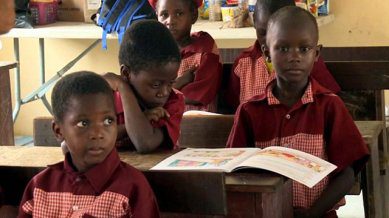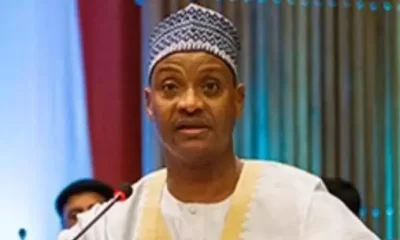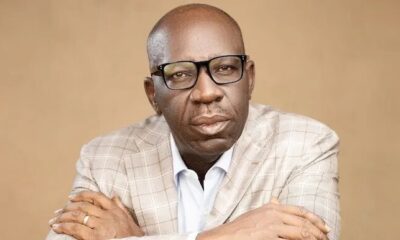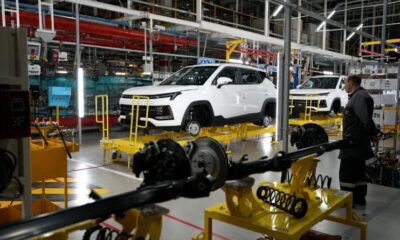Educational Issues
Agony of education imbalance in Nigeria -By Gbadebo Adeyeye
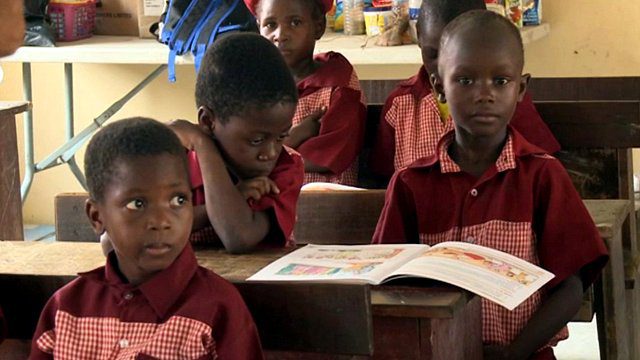
Aristotle said: “The whole is greater than the sum of its parts”. That is why many of us can no longer continue watching Nigerian students to be locked out of a well-rounded education by few careless, grossly opportunistic architects of the nation’s status quo. Instead, we must let those we appointed to make education policy for this country understand through a collective voice that public education in Nigeria has a potent constituency— one that will be dangerous to ignore by the shills at the federal secretariat! For example, the incredible failure of Nigerian high school students in national examinations as a result of indescribable politics of education in our society has now reached a disastrous level that a large number of parents will no longer tolerate such broad, catastrophic underperformance. After all, if failure is not good for the children of policymakers, majority of who now school in Ghana and South Africa because of the out-of-balance school system at home, it is not good for any child in Nigeria.
First of all, let us take two football teams and give only one an extra month to exercise and practise while the other team is locked out of the field. Which team do you think will come out ahead on game day? Now, to see more than 70 per cent of Nigerian students not completing a high school education successfully in this country is a terribly sad spectacle. It is even sadder when we compare this figure with only three per cent in Japan. And in Russia, with all its domestic problems, more than 95 per cent of the workforce has the equivalent of a high school education. By the end of each school year in the United States, students accumulate enough uninterrupted schooling to pass important examinations like the statewide and SAT successfully while Finland continues to lead the entire world in education system!
But here in our own country, the notion that Nigerian students are failing because their teachers don’t teach them well is pure baloney. The destructive impact of the out-of-balance school curriculum in the society has been especially severe. In depressingly many respects, for instance, the damage done to public education in Nigeria by forcing innocent students to learn over 15 subjects (including the language they cannot read) in high school under the guise of education “reform” without regard for the consequences is devastating. Agreed, that constant reform has always been part of democratic experience. But “reform” and “change” are not the same. Change is good only if it happens to be improvement. Change that destroys what is good (as we always have in Nigeria) is bad. And as a believer in the power and promise of public education, however, the truth is that we cannot meet the expected standards of education in our country under this present system until we return to the old-fashion notion that public education is important; that high standards of education must be set and enforced in all our schools; and that common sense national policies and pronouncements are essential to public education. Of course, not all children in our country can meet high education standards. But those who can meet high standards, particularly in the Western part of the country, should not be held back by those who cannot ‘catch up’ on the basis of quota.
Unfortunately, in their usual rapacious disposition, majority of those officials we employed into the federal secretariat to keep a check and balance on the nation’s education system are only concern with their personal checks and the balance of their quid pro quo rather than focusing on how to improve standards. This is moral misery at its worst! Whereas, it is important now more than ever before that Nigerian children must be well-educated. Public education is the cornerstone of our republic and the key to become a more productive member of a civilised world. Education provides individuals with the skills to be involved, informed and engaged in a representative government; and in our own case, our success in 21st century as a nation depends on an educated workforce and an engaged citizenry. That is why former American president James Madison once said: “A popular government without popular information or the means of acquiring it is but a prologue to a tragedy. Knowledge will forever govern ignorance; and people who mean to be their own governors must arm themselves with the power that knowledge gives”. Therefore instead of demonizing hardworking school teachers and continue to lock their students out of a well-rounded education in Nigeria, it is time for our policymakers to sit down, measure what matters and put the interest of Nigerian children at the center of our education system once again. And since we all know what is presently at stake, we must be fearless and not be silent on abject failure among the Nigerian school children!

